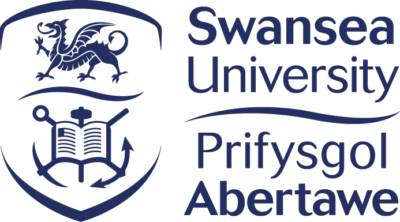
Duration
Full time-3 years
Μοde of Delivery
On site, Online
Language of Delivery
Greek, English
Start Date
October 2026
Location
Athens, Greece



Description
The BSc (Hons) Psychology is a three-year undergraduate degree programme that offers comprehensive knowledge across all core areas of Psychology.
If you are fascinated by human behavior and wonder why people think, act, react, and interact in certain ways, then BSc (Hons) Psychology is the ideal choice for your studies.
Throughout the programme, you will gain knowledge from various professional fields within Psychology. You will have the opportunity to explore both the biological and social foundations of human behavior, with an emphasis on developing essential skills in research, methodology. You will also experience the practical application of psychology.
Psychology at Swansea University is ranked Top 201-250 in the World (QS World University Ranking by Subject 2025).
Objectives of the Programme
- The BSc (Hons) Psychology program is accredited by the British Psychological Society (BPS).
- As a student of the Psychology department at IST College, you will have the opportunity to attend supplementary courses and seminars designed to further develop your personal and professional skills. You will work with experienced professionals in the field and learn the practical approach of how Psychology is applied in today’s job market.
- The programme allows you to focus on the scientific nature of Psychology and familiarize yourself with key subject areas such as Social Psychology, Developmental Psychology, Individual Differences, Cognitive Psychology, and more.
- The curriculum is carefully designed to ensure your theoretical, research-based, and practical training in Psychology, setting a strong foundation for a successful professional career.
- The programme is supported by IST College’s dynamic educational platform, offering a blend of in-class and distance learning, along with on-demand, pre-recorded lectures, allowing you to study at your own pace and time. Through the recorded lessons you will also have the opportunity to revisit lectures so that you can better understand the subjects that are taught.
Structure of the Study Programme
Module Overview:
This module introduces key theoretical and methodological issues in two major areas of cognitive psychology: Attention and Perception. Starting with a historical overview of the field, students will explore core research questions related to these aspects of cognition. The course presents the various methodologies used over the past 50 years to study mental processes, with a focus on the fundamental mechanisms of attention and perception.
In addition, the module delves into contemporary research topics and scientific debates surrounding these cognitive domains. Special emphasis is placed on how modern methodologies can be used to explore cognitive abilities and gather insights into how the brain receives, processes, and responds to information from different sensory modalities.
Module Overview:
This module covers two key areas: (i) individual differences in intelligence and personality, and (ii) clinical psychology and psychopathology.
Students will examine theoretical models describing personality structure (trait vs. factor approaches), personality development (learning vs. psychoanalytic theories), and personality assessment. Historical approaches to intelligence testing will be critically assessed alongside the genetic and environmental influences shaping intelligence.
The clinical psychology component explores definitions and conceptualizations of “atypical” behavior, along with explanations from learning theory, biology, genetics, and psychoanalysis. The module also reviews symptoms of major psychological disorders, including schizophrenia, mood disorders, and personality disorders.
Module Overview:
This self-directed online module is divided into three parts and supports students in adapting to university life and academic demands. It helps them focus on their goals while developing key new skills for success.
Topics include navigating university life, managing time effectively, developing learning independence, and accessing support services. Students also build a solid foundation in essential academic skills, such as varied learning techniques to improve performance and practical tips for enhancing personal and organizational abilities.
The module emphasizes core values of good academic practice, including maintaining academic integrity, finding one’s academic “voice,” and using tools and strategies to avoid accidental plagiarism.
Each section includes interactive learning tasks, practical scenarios, portfolio development activities, additional support materials, and a short quiz to consolidate learning. This module introduces Psychology students to the fundamental concepts of statistics and research methods. Students will become familiar with the ethical principles of the British Psychological Society (BPS) and explore research ethics by examining historical case studies of controversial experiments.
The course covers the design of experimental and observational research, and the measurement of psychological constructs such as personality traits, attitudes, and emotions. Students will develop a solid foundation in statistical theory and will learn how to summarize, present, analyze, and interpret data.
In small group sessions with their Academic Advisor, students will also build key academic skills, including literature searching, essay planning and writing, delivering presentations, using feedback effectively, and referencing academic sources.
Module Overview:
This module introduces students to the major theories and empirical issues in social and developmental psychology.
The social psychology component covers topics such as attitudes, attributions, conformity and obedience, person perception, interpersonal attraction, stereotypes, prejudice, and discrimination.
The developmental psychology component explores key issues such as infancy and early social development, along with cognitive development theories during infancy and childhood.
Module Overview:
This module provides an introduction to biological psychology and the influence of the biological approach within the broader field of psychology. Through a series of lectures, the course examines the structure and function of the brain and the central nervous system, and their role in shaping human behavior.
It explores the significance of hormones and neurotransmitters in physiology and behavior, as well as the biological basis of individual differences.
Fundamental topics such as emotion, motivated behavior, language, sleep, learning and memory, and schizophrenia will be examined. The course also integrates the relevance of evolutionary psychology and the interaction between genes and environment.
Module Overview:
In this module, students will conduct two research studies and present their findings in the form of two scientific research papers. In addition, through weekly sessions with their Academic Advisor, students will begin to explore their professional development.
Module Overview:
This module provides an in-depth understanding of the complex relationship between brain function—from individual neurons to entire brain systems—and behavior, in both humans and animals.
Students will gain foundational knowledge of core learning theory principles and how these are applied within psychology and neuroscience research.
The module also explores how the brain responds and adapts to the external environment, the interaction between genes and environment, and how this affects brain function and behavior. Key topics include stress, obesity, pain, motivation, and emotion.
It also examines the effects of recreational drug use on the brain and the behavioral consequences of such use.
Module Overview:
This module explores important theories and empirical issues within social psychology and individual differences. It focuses on how individuals differ (e.g. in personality traits), and how both individual and social factors influence behavior—including topics such as ethnocentrism, group performance, and prosocial behavior. The module addresses both classic and contemporary theories and research, and covers group dynamics, attitudes, and personality. The social psychology component is structured around intrapersonal (individual-level) and interpersonal (group-level) processes. The individual differences component explores behavioral genetics, intelligence, and personality, as well as how individuals function within a social context, emphasizing motivation, attitudes, and evaluations. Key questions include:
- How do attitudes influence our behavior?
- What is the role of nature vs nurture in individual differences?
- What drives aggressive behavior?
Module Overview:
This module aims to further develop students’ understanding of quantitative and qualitative research methods and statistical techniques used in psychology. It prepares students for their final-year independent research project. Students will learn to use the JASP statistical software for quantitative analysis and will design small-scale research projects, apply appropriate statistical tests, and interpret and present data effectively. They will also be introduced to qualitative research methods. Key topics include research ethics, the characteristics of robust experimental design, managing confounding variables, the importance of reproducibility, and maintaining reliability in scientific research.
Module Overview:
This module provides an in-depth exploration of the cognitive processes underlying higher-order mental functions such as language, thinking, problem-solving, reasoning, and decision-making. Topics covered include the organization and function of memory, major and widely debated issues in psycholinguistics—such as how children acquire language, and how language is processed in the adult mind, with special focus on reading, dyslexia, and bilingualism. The module also examines classical and contemporary research exploring how individuals assess situations, make decisions, and solve problems and puzzles.
Module Overview:
Module Overview:
This module builds on PSY237 Research and Experimental Methods I and aims to further develop students’ understanding of quantitative research methods and statistical techniques used in psychology.
Students will study advanced multivariate analysis techniques and work with complex experimental designs.
In addition, they will explore contemporary issues and trends in research methodology, such as open science and the use of big data in psychological research.
The module prepares students for the independent research project in their final year.
Module Overview:
This module explores how psychological principles are applied to address modern challenges within the criminal justice system.
Topics include mental health, traumatic brain injuries, neurodiversity, and psychopathy, with a focus on their impact on criminality, sentencing, and offender management.
Broader societal issues such as cybercrime, misogynistic ideologies online, radicalized communities, and wellbeing in detention are also addressed.
By combining theoretical knowledge with practical application, this module equips students with the critical understanding and analytical skills needed to engage with evolving discussions and practices in forensic psychology.
It is designed to remain flexible and responsive to current developments, offering a dynamic framework to investigate the intersection of psychology and criminal justice.
Module Overview:
This module explores the origins of neurodiverse characteristics, diagnostic and developmental factors, shifting societal perceptions, common comorbidities, and the types of educational, occupational, and healthcare support neurodiverse groups may require.
Students will examine the balance between treatment and acceptance, and critically evaluate the medical, social, and neurodiversity models that shape perceptions of neurodevelopmental conditions.
In addition, the module will discuss the possibility of emerging neurodevelopmental disorders that have not yet been officially classified, with students assessing the current scientific evidence supporting such groups.
Module Overview:
Students will conduct an independent research project under the supervision of a faculty member. The research topic is decided collaboratively between the supervisors and the students.
Students are required to design, conduct, analyze, and write up a piece of research to meet the postgraduate base for British Psychological Society (BPS) accreditation.
They must also complete an ethics assessment form, demonstrating that they have considered and addressed ethical issues related to their project and have applied appropriate best practices to enhance the reproducibility of their research.
Module Overview:
This module investigates how behavior is learned and reinforced, drawing on principles of learning theory and operant conditioning.
Using real-world case studies, it showcases how these principles relate to the development of anxiety disorders (e.g. phobias) and other psychopathologies (e.g. schizophrenia).
A key focus is on the connection between these learning principles and the emergence of issues related to gambling addiction.
Module Overview:
This module explores how lifestyle choices and environmental exposures influence mental health and wellbeing, with emphasis on the exposome—the cumulative effect of environmental factors on biological processes throughout the lifespan.
Students will examine how elements such as diet, physical activity, sleep, hydration, and work patterns affect psychological wellbeing, both positively and negatively.
The course aligns with preventative approaches, aiming to promote long-term mental resilience.
Module Overview:
Students will conduct an independent research project under the supervision of a faculty member. The research topic is decided collaboratively between the supervisors and the students.
Students are required to design, conduct, analyze, and write up a piece of research to meet the postgraduate base for British Psychological Society (BPS) accreditation.
They must also complete an ethics assessment form, demonstrating that they have considered and addressed ethical issues related to their project and have applied appropriate best practices to enhance the reproducibility of their research.
More Information
With a Psychology degree, you can work in various professional environments such as:
- Mental health services
- Schools
- Research companies
- Social welfare organizations
- Hospitals and elderly care facilities
- Media
- Human Resource departments
- Support and therapy services
- Non-governmental organizations (NGOs)
You may also choose to practice as a freelance psychologist and open your own practice, in accordance with applicable regulations.
At IST College, you can also participate in the Job Opportunities Programme (JOP), which aims to guide you in career planning and help you build skills which we feel are necessary to enter the labor market.
The BSc (Hons) Psychology programme is addressed to high school graduates who wish to pursue a career in the field of Psychology, as well as working professionals or students from other disciplines.
As a graduate of the BSc (Hons) Psychology programme, you will have the opportunity to pursue one of the successful postgraduate programs offered by IST College or explore other postgraduate options in Greece or abroad.
IST College supports you throughout the process of identifying and selecting the most suitable Master’s or Doctoral degree programme that fits your academic and professional goals.
The programme is offered in class, through scheduled classes at our facilities located at 68 Syngrou Avenue (next to “Syngrou – Fix” Metro Station).
You also have the option to attend courses online, through our modern educational platform, either via live-streamed sessions (synchronous e-learning) or on-demand (pre-recorded lectures), allowing you to study at your own time and pace.
High School Diploma or Equivalent Title
The programme is conducted in Greek/English.
It is important to note that during your three years of study at IST College you will have the opportunity to attend English language courses included at your tuition fees, depending on your level, so that by the end of your academic studies you will have improved your knowledge of the language.
The registration process is simpler and shorter than ever!
You can enroll in the following ways:
Α) Online
You can download the application form here and send it completed to admissions@ist.edu.gr, along with the requires documents to apply (to view them click here) and proof of deposit (to view the bank accounts click here.)
Β) By visiting IST College
The IST College Administrative Staff will be at your disposal to help you apply. All you need to do is come to IST College with the necessary documents to apply, to view them click here)
To enroll and attend a Bachelor’s programme at IST College you need to pay annual tuition fees.
Method of Payment
The annual tuition fees must be in lump sum or in consultation with IST College’s financial services, it is possible to pay in installments.
In addition, your Education Advisor will inform you of the financial and social criteria that will secure you a tuition fee subsidy of up to 30%, supported by the IST College Student Support Fund.
You can also apply for one of the Scholarships offered by IST College, announced periodically by IST College in collaboration with well-known companies and organizations. For more information click here.
It is important to note that payment of annual tuition fees entitles you to enjoy a number of privileges and services at no extra charge such as:
- Registration and attendance of your courses from the beginning of October until the end of May.
- Use of the IST College learning resources
- Participation in the activities of the orientation week
- Participation in the Examinations
- Supervision of coursework
- Use of the IST College Modern Education Platform
- Access to the Computer Labs
- Issue of the corresponding certificates of studies, grades and certificates from both IST College and the partner university
- Participation in seminars, events and conferences organised and offered by IST College.
Please note that tuition fees do not include any expenses for the purchase of books, photocopies and your participation in excursions or entertainment events as well as the graduation ceremony at both IST College and the partner University.
Should you fail a year or semester module and need to re-register, you will have to pay additional tuition fees for each module.
The BSc (Hons) Psychology degree is delivered in Greece by IST College under a formal collaboration agreement with the British university.
(https://www.minedu.gov.gr/ateen-anagnorisi-epaggelmatikis-isodynamias).
Once professional equivalence is granted, the degree can be used professionally in the same way as Greek university degrees in Psychology. After obtaining the ATEEN decision, you can apply to the competent Regional Authority for a license to practice as a Psychologist in Greece, according to current legislation.
A large number of IST College graduates have followed the legal procedures and have obtained professional equivalence recognition from ATEEN.
The BSc (Hons) Psychology programme is certified by the British Psychological Society (BPS), and after an individual application, you are eligible to register as a member of BPS. If you proceed with postgraduate and/or doctoral studies and acquire clinical experience, you can also work toward becoming a Chartered Psychologist in the United Kingdom.
You may also be interested in:
The BSc (Hons) Business Management (Finance) is the ideal programme for those aiming to stand out in the field of Financial Management.
Undergraduate
The BSc (Hons) Business Management is a 3 year degree that provides a solid foundation in core business areas, preparing students for a successful global career.
Undergraduate
The BSc (Hons) Business Management (HRM) focuses on the human side of business, offering specialised knowledge in leadership, culture & talent development.
Undergraduate
The BSc (Hons) Business Management (Finance) is the ideal programme for those aiming to stand out in the field of Financial Management.
Undergraduate
The BSc (Hons) Business Management is a 3 year degree that provides a solid foundation in core business areas, preparing students for a successful global career.
Undergraduate



